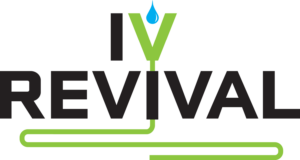In the past month, Arizona has continuously surpassed a majority of states in positive COVID-19 cases. For a few weeks, Arizona was the top in the nation for COVID cases. It was only recently surpassed by Florida and Texas in mid-July.
To put this into perspective, let’s compare data points provided by the Arizona Department of Health Services.
As of July 6, 2020:
Number of total cases: 101,441
Number of deaths: 1,810
Number of tests: 800,452 (11.1% positive)
Number of new cases reported today (July 6): 3,352
As of July 15, 2020:
Number of total cases: 131,354
Number of deaths: 2,434
Number of tests: 936,277 (12% positive)
Number of new cases reported today (July 6): 3,257
In nine days, the state saw an increase of 30,000 COVID cases, 624 more deaths, and nearly a 1% increase in positive test rates.
COVID-19 is still a very real threat for our country and we at IV Revival wanted to provide you with an update of everything we know and how to continue to protect yourself and optimize your health during this uncertain time.
Facts About COVID-19
COVID-19 is a new strain of an old disease called the coronavirus. Though not much is known of COVID, it is thought to be a severe acute respiratory syndrome. Experts are still learning about the disease and trying to find a vaccine and a cure, as well as learn how and why it affects the body.
Because so much is still not known of this disease — which first appeared in China at the end of 2019 — it is imperative that you understand the known symptoms and protect yourself.
Not all causes are severe and most with the disease recover from it fully. Symptoms tend to appear between 2-14 days of exposure.
Symptoms include:
- Fever or chills
- Cough
- Shortness of breath or difficulty breathing
- Fatigue
- Muscle or body aches
- Headache
- New loss of taste or smell
- Sore throat
- Congestion or runny nose
- Nausea or vomiting
- Diarrhea
Am I At Risk For COVID?
Everyone can catch COVID. According to the Center for Disease Control, older adults and people who have severe underlying medical conditions like heart or lung disease, or diabetes seem to be at higher risk for developing more serious complications from COVID-19 illness.
If you notice any of the following signs, seek medical care immediately:
- Trouble breathing
- Persistent pain or pressure in the chest
- New confusion
- Inability to wake or stay awake
- Bluish lips or face
Is My Pet Safe?
It is extremely rare for humans to pass on the infection to their pets, but it can happen. In all known cases, dogs rarely exhibited any symptoms and cats had mild respiratory problems. All known pets with the disease recovered.
Farm animals and zoo animals are also susceptible to the disease, according to the World Health Organization.
It is impossible for your pet to pass it on to another human, though animal to animal transmission is still being researched.
How to Protect Yourself and Others
There has been a lot of misinformation about how to protect yourself and others. We’d like to clear some of that up.
The biggest thing you can do to protect yourself is to stay at home and isolate. When you do go outside, stay at least 6 feet away from others.
A non-medical grade mask does not protect the wearer, but wearing one is scientifically proven to reduce the risk of spread. This means that if you are unknowingly carrying COVID, a mask acts as a barrier for respiratory particles, thus reducing the risk of those particles infecting others around you.
In addition to the above measures, the CDC recommends you:
- Wash your hands often with soap and water for at least 20 seconds
- Use a hand sanitizer that contains at least 60% alcohol if soap and water are not readily available
- Avoid touching your eyes, nose, and mouth with unwashed hands
- Stay home if you’re not feeling well
- Avoid contact with other people, especially those at risk
- Avoid highly trafficked public areas
- Wear a face mask to reduce your risk of infection
Does Taking Vitamin C Help?
It is important to understand that no supplement will cure or prevent the disease. Some can help optimize your immune system and reduce symptoms, such as vitamin C, but no supplement will guarantee that you won’t catch the disease.
As COVID research continues, medical professionals looked for ways to alleviate symptoms and fight the disease. Many turned to treating patients with IVs filled with high doses of vitamin C.
The thought process behind these treatments is that vitamin C works as an anti-inflammatory, supports white blood cell development (the cells that actively fight pathogens), and is an antioxidant that can help fight the damage that the disease.
Vitamin C can help boost your immune system, but it is not yet known if it is effective at reducing your risk of catching COVID. Because the treatment is so new, clinical data on its effectiveness will not be available for a while.
How IV Revival is Protecting You
At IV Revival, we’re all about optimizing your health and are dedicated to protecting you in whatever way we can.
In April, our owner Megan Jore went above and beyond, and hand delivered 200 bottles of hand sanitizer to those who needed it.
We are still offering at-home visits. Our registered nurses are trained on sterilization and preventative measures. We also have new guidelines in place to protect our staff and you.
If you’re interested in protecting your health or optimizing your wellness, or if you have questions on how we are working to keep you safe, please contact us today!
